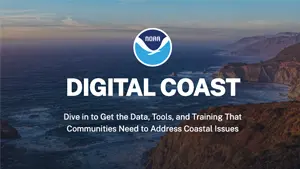 Natural infrastructure is the focus of this NOAA Office for Coastal Management Digital Coast website, where you’ll find numerous online and in-person training guides.
Natural infrastructure is the focus of this NOAA Office for Coastal Management Digital Coast website, where you’ll find numerous online and in-person training guides.
Natural infrastructure, also referred to as green infrastructure, uses existing natural areas (and engineered solutions that mimic natural processes) to minimize flooding, erosion, and runoff.
Topic areas include:
- Communicate the Issue
- Analyze the Landscape
- Prioritize Options
- Explore Economic Approaches
Key resources include:
Nature-Based Solutions for Coastal Hazards
Attend in-person or virtual training to discuss key nature-based solutions and implementation steps, and hear from experts in the field.
Green Infrastructure Effectiveness Database
Discover literature documenting the effectiveness, as well as cost and benefits, of various green infrastructure techniques.
Measures for Shoreline Stabilization
Get information on a continuum of green to gray shoreline stabilization techniques that can help reduce coastal risks.
Green Infrastructure Protective Services
Watch a short animation describing the protective benefits of green infrastructure. This is a useful outreach tool.
Green Infrastructure Benefits
Use this handout to provide local officials with information on the protective benefits of green infrastructure.
Click here to view the resource.




